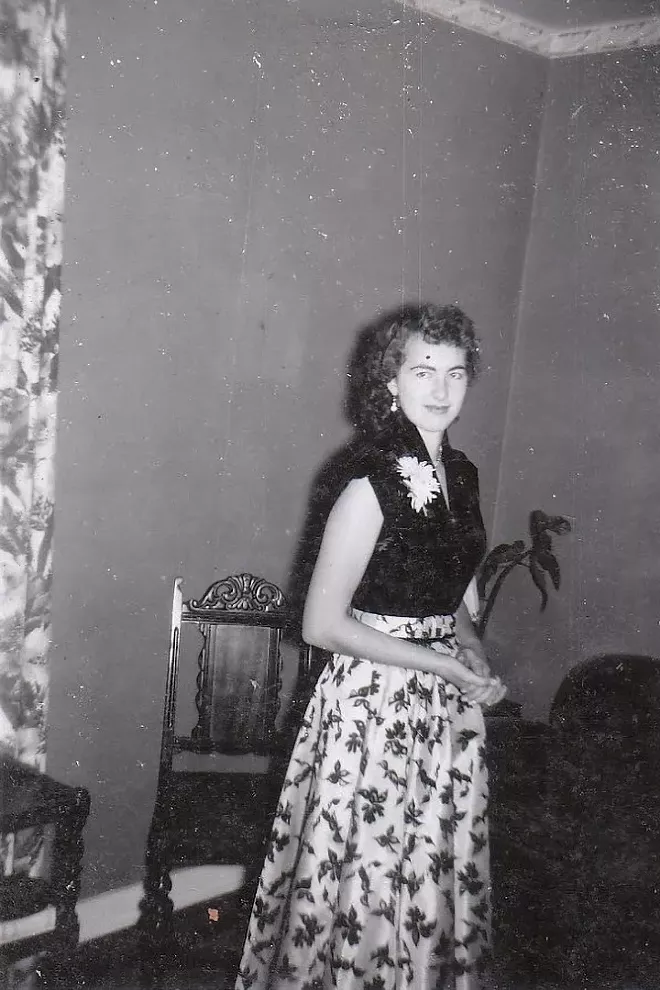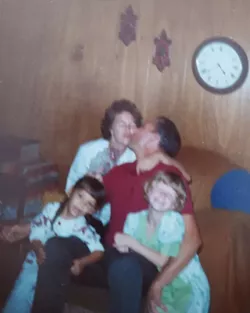"I'm asking the people who love their mother, whether they're here or not, to post a photo of the woman who gave birth to you!"
The goal, someone had copied and pasted, was "to flood FB with positive..." I stopped reading, irritated at the presumptiveness of the request. Granted, Facebook is not the most reliable source for thoughtful engagement, but what stung was being reminded, again, that adoption is the forgotten other in the Mother's Day conversation — in so many conversations about family. "Not every mother gave birth to their child," I typed into the comment box and hit send.
Normally, I would say nothing. I understand about blind spots, but I also know that it is the person in the blind spot who is either required to forgive or educate. Either position is unpleasant, but after decades of worrying about hurting the feelings of those who claim ignorance, my coat of appeasement has worn thin.
I am an adoption story. The transracial one. The one that has a story, not pictures. The one about the dark-haired, brown-skinned girl who looked nothing like the red-headed, nearly translucent skinned sister three years ahead of her in elementary school, embedding the family name so that teachers would always ask, "How are you related to Janet?" The fourth grader who pointed out her mom at field day and having her teacher respond with that trying-to-make-sense-of-it-head-tilt. "I'm adopted," I told her, and the head tilted to the other side, spilling the words, "Oh, I'm so sorry. I didn't know." Tell an eight-year-old you are sorry when they share their family story and they will always associate adoption with shame.
Then there are those who say, "Your mom and dad must have really wanted you." They did; I'm lucky for the childhood they gave me and for the love and support I receive still, but the conjecture assumes relinquished children were at once unwanted. (I have read many narratives from adoptees, and even more from biological children, whose childhoods were horrible.)
I've been on both sides of the adoption equation. There is not a cell in me that didn't want my child, but something deeper, that spoke in love and fear, made the choice harder. Even now, when I mention giving up a child at 19, people say, "We all make mistakes when we are young." The child who is not a mistake found me recently and wrote, "Families come in so many different forms." His parents had been waiting for over a decade when I chose them from an album of hundreds waiting to adopt. That child is not their mistake either. And please, don't bring me into the current argument by telling me how lucky either of us are not to have been aborted. I refuse my experience to be used to justify another in their argument about women's rights. No matter which side they are on.
Shame also stalks the mother who adopts. "Why couldn't your mom have kids," I'm asked, as if infertility is a prerequisite and a woman must have an open heart and an open womb. My mom, a child of the rural 1930s, defended my dad and her choice to adopt even when her friends said it was risky. You just don't know what you'll get... and to take on an Indian kid... an orphan?
My mom took on more than insensitive comments. Of all the assumptions made about her body, a body that could have borne children, the one no one ever made was that she bore the secret of my father's infertility for 60 years. She waited for him to die before revealing the truth.
Where is the Mother's Day post asking for pictures of mothers like my mom? Mothers who made great sacrifices that allowed another to raise their child? Where are the Mother's Day cards that celebrate foster moms? And what day have we set aside for kids in orphanages and the women that mother them? Or for the mothers who tried and couldn't? When will consanguinity and physical resemblance stop determining belonging and defining family? In how many ways will society keep ignoring mothers with its limited and colonizing ways that claim to honor them? ♦
CMarie Fuhrman is the author of Camped Beneath the Dam: Poems (Floodgate 2020) and co-editor of Native Voices (Tupelo 2019). She has published poetry and nonfiction in multiple journals including Emergence Magazine, Yellow Medicine Review, Cutthroat a Journal of the Arts, Whitefish Review, Platform Review, Poetry Northwest, as well as several anthologies. Fuhrman resides in the mountains of West Central Idaho.


